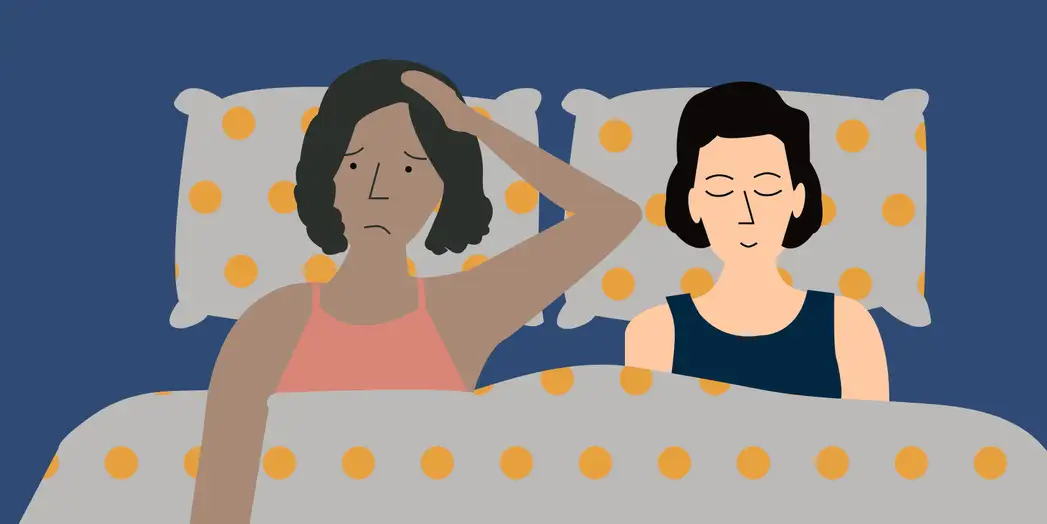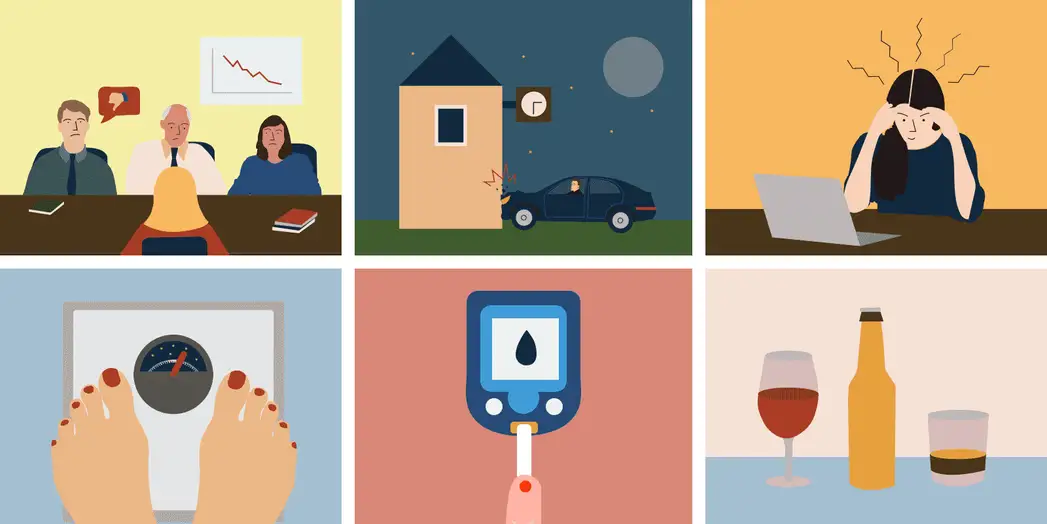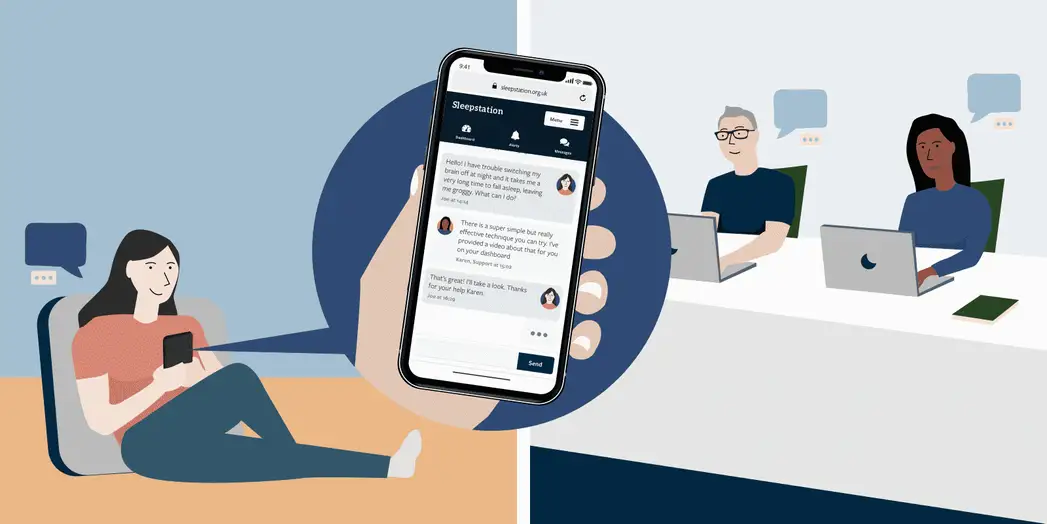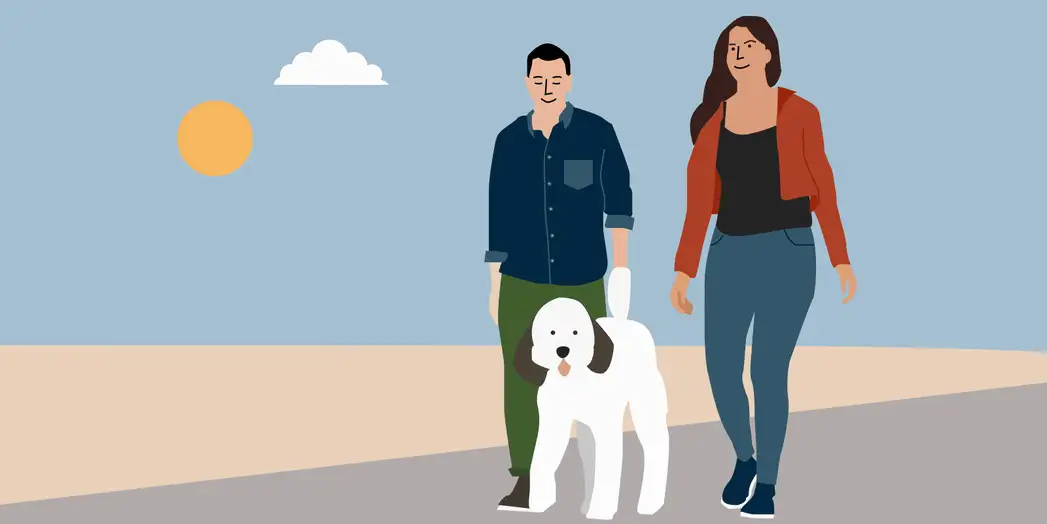If you’re reading this, the chances are that you’re interested in sleep in some way. Either you’re trying to find out a little more about the thing we spend about one-third of our lives doing or you’re trying to figure out how to get better sleep.
After all, there are plenty of reasons for wanting better sleep. Sometimes, no matter how much someone wants to, they simply can’t sleep well. This could be down to life stress, a medical condition or other factors.
Some causes of poor sleep are situational — for example starting a new job, coping with illness or going through a divorce. The effects of these stressors are usually temporary and so your sleep should improve on its own.
When poor sleep persists and starts to affect quality of life, it becomes a real problem. The most likely cause is insomnia.

Why treat insomnia early?
We believe in giving you evidence-based information here at Sleepstation, so that you can understand why we suggest the things that we do. This is because we want people to make the best possible choices for themselves.
When it comes to why it’s worth treating insomnia early, we’re going to take a break from our usual approach and simply ask:
“Why keep living with something that’s harming you but that can be solved?”
The consequences of insomnia are well known and include:
- negative impacts on working life
- increased accident risk (car, workplace, domestic)
- mood disturbances
- increased risk of physical health problems like obesity and diabetes
- unhealthy self-medication, e.g. drinking too much
- strain on personal relationships and social life.
The longer insomnia goes untreated, the longer you’ll be living with those problems too. So, the best thing to do for a persistent sleep problem is to seek help so that the distress caused by your insomnia is kept to a minimum.

There are plenty of ways to treat insomnia but one method is by far the most effective — a special type of cognitive behavioural therapy that’s tailored to target insomnia (CBTi).
This method of treatment can be used with or without the assistance of sleep medication and it’s the methodology that underpins what we do at Sleepstation.
We know that good things come to those who wait and CBTi is a very good thing — so it’s not an instant fix.
We tend to compare it to a diet — it’s really important to be consistent and to commit to the plan and, if you can stick with it, the results can be truly life-changing.
When something takes a bit of hard work and effort to implement, it can be easy to give up before you’ve seen the benefits but it’s really important to keep going to get the best results.
That’s why dedicated support is provided as standard in our sleep improvement programme. When you’ve got support and reassurance, it’s much easier to stay focused and motivated.
Long-term recovery from insomnia is a marathon, not a sprint

When you start working on a plan to improve your sleep, it’s important to take things one step at a time. It may be tempting to try to tackle everything at once in the hope of finding a quick fix but you’ll not know what’s working (and what isn’t) if you try lots of things at once.
Our team can help you find the best starting point to address your specific sleep problem and guide you through a personalised plan that’s designed to chip away at the problems over a number of weeks, leaving you with restored sleep.
In making the journey to better sleep, some of the things that you’ll be invited to do may feel difficult at first. However, we’ll only suggest changes that should be achievable for you and we’ll support you to implement these scientifically proven strategies.
You don’t have to do this alone
When sleep feels impossible, it’s easy to lose hope. But real change is possible, with the right support. At Sleepstation, we combine expert guidance with proven techniques to help you stay on track and see real results. We’ll help you:
- stay motivated and supported throughout your journey
- understand what’s really disrupting your sleep
- build habits that lead to lasting change
- finally get the deep, refreshing sleep you’ve been missing.
You’re not alone. And you don’t have to figure your sleep out by yourself. Let’s fix it, together.
Tried CBTi before and it didn’t work?
One part of CBTi that some people may find difficult is sleep restriction therapy or SRT. This method requires you to reduce the time you spend in bed for a period of time until your sleep pattern starts to improve.
There are other components to CBTi which require some challenging adjustments. ‘Stimulus control’, for example, requires you to use your bed only for sleep and sex (no bedtime browsing!).
Perhaps you’ve tried to do this in the past and not had success with it, so you think CBTi won’t work for you. This is rarely the case.
CBTi works for most people but the key to success is having the right support to help you stick with it through the difficult days. Again, just like a diet — it might not be easy but the rewards will be worth the effort.
We won’t be discussing the mechanics of the various modules in this article but we will explain how to deal with any hurdles you may experience when you’re working to improve and optimise your sleep.
Stick with it and get results
‘Adherence’ in the context of insomnia treatment means the ability to follow through on treatment recommendations — it’s a fancy term for sticking to the plan.1
There appears to be a link between good adherence and treatment outcome so it’s in your interest to stick with the programme in trying to get better sleep. Adherence is affected by factors such as:
- boredom
- annoyance
- discomfort.2
So, being aware of these potential issues and being able to actively address them if they crop up can help you to stick with it and get the results you’ve been dreaming of.
Let’s take a look at each of these three factors in a little more detail.
Boredom. If your sleep improvement plan requires you to stay awake late into the night, it can be helpful to consider how you view that time.
To avoid getting bored, and seeing it as a punishment, try planning an activity that you like to do during those ‘extra hours’ that you’re being advised to stay up for.
Since everyone is different, we can’t really tell you how to address any potential boredom that you might experience specifically, but we’ve compiled a few ideas here to help you on your way. Your imagination is the limit!

Annoyance. This refers to the irritation that someone might experience when things aren’t working as well as they feel they should.
Sometimes things happen without a reason and, in the case of insomnia, it’s important to relax and not be angry with yourself or the situation if you continue to have trouble sleeping in the early stages of treatment.
Discomfort. Very few people will be able to persevere with something that’s uncomfortable in the short term and that’s why we think that everyone should have support when they’re trying to follow a plan to improve their sleep.
When you’ve got a team of people there to support you, your plan can be adjusted as required to help you get the most out of it.
Some of the strategies used to treat insomnia can make you feel a little worse before you get better so it’s always best to have support on hand so that you can know what to expect and get help if you’re struggling.
Making these slight adjustments requires a good level of personal interaction, so it’s not something we believe can be carried out by a computer or algorithm and that’s why we have a team of real people behind our online programme — not just a bunch of computers.
Everyone who uses Sleepstation is fully supported by our team of trained sleep coaches, who work directly with our sleep experts, therapists and clinicians, giving them access to a person (not a robot) to help them to follow their plan, making adjustments as necessary, and reach their sleep goals.
We know from experience that real support matters.

Furthermore, those with more severe insomnia seem to find it useful to seek treatment help more regularly. This would suggest that accessible advice is an important part of the treatment process for many people.3
Find your why. It’s also important to remind yourself why you want to improve your sleep on days when you might be struggling to stick with the plan.
Even though improving and optimising your sleep is a worthwhile aim in itself, often people seek insomnia treatment because their poor sleep is interfering with something else (for example, work or family life).
Reminding yourself of what you have to gain — and why poor sleep may be holding you back — is a great source of motivation when you’re going through treatment for insomnia.

How can a therapist help you?
Individual motivation is important when it comes to addressing sleep problems and treating insomnia but it won’t get you very far if the sleep service (online or otherwise) that you’re using isn’t able to adjust the plan to suit your needs.
When it comes to insomnia treatment, one size doesn’t fit all. There are countless apps that claim to be able to fix sleep problems but many of these don’t provide any support or tailored advice.
Before you decide on a provider, it might be worth finding out what the service you’re interested in offers in terms of tailoring.
Services that are tailored to the individual’s needs tend to produce better outcomes — you’ll have more chance of success if you pick a programme that includes support from real people.
Sleep improvement plans can be tailored in a number of ways but a few notable options are:
- Attitude to treatment: Some people respond better to a ‘taskmaster’ approach where the steps to better sleep are clearly defined and the person is held accountable in following them.Others prefer a more ‘friendly’ approach where treatment is delivered in a more collaborative way with less surveillance over the person’s progress.
- Individual or group treatment: Receiving insomnia treatment in a group session can really help some people, since it reminds them that they’re not alone.They may also feel more comfortable talking about their experiences and exchanging advice with those who have a direct experience of poor sleep.Conversely, others prefer one-on-one interactions. This appears to be the case for people who are also experiencing other issues, such as depression or anxiety, in addition to their sleep problem.
- Altering the treatment sequence: Some parts of insomnia treatment are more demanding than others and may cause the person to experience stress if certain techniques are introduced at the wrong time.Therefore, it might be helpful if a therapist ‘works up to’ more demanding strategies once some initial momentum is established.4
If you’re looking for a tailored approach to addressing a new or existing sleep problem, then you’ve come to right place.
Our team can help you pinpoint the causes of your sleep problem and provide you with dedicated support to help you overcome the problem and restore your sleep.
Summary
- Treat insomnia early.
- Don’t feel you have to do it alone.
- Stick with it — it’s unlikely to work overnight.
- Use the resources available to you in the way that best work for you.
References
- Sateia MJ, Buysse DJ, editors. Insomnia: Diagnosis and treatment [Internet]. Boca Raton, FL: CRC Press; 2016. ↩︎
- Vincent N, Lewycky S, Finnegan H. Barriers to engagement in sleep restriction and stimulus control in chronic insomnia. J Consult Clin Psychol. 2008;76(5):820–8. ↩︎
- Cheung JMY, Bartlett DJ, Armour CL, Saini B. The insomnia patient perspective, a narrative review. Behav Sleep Med. 2013;11(5):369–89. ↩︎
- Dyrberg H, Juel A, Kragh M. Experience of treatment and adherence to Cognitive Behavioral Therapy for insomnia for patients with depression: An interview study. Behav Sleep Med. 2020;1–11. ↩︎